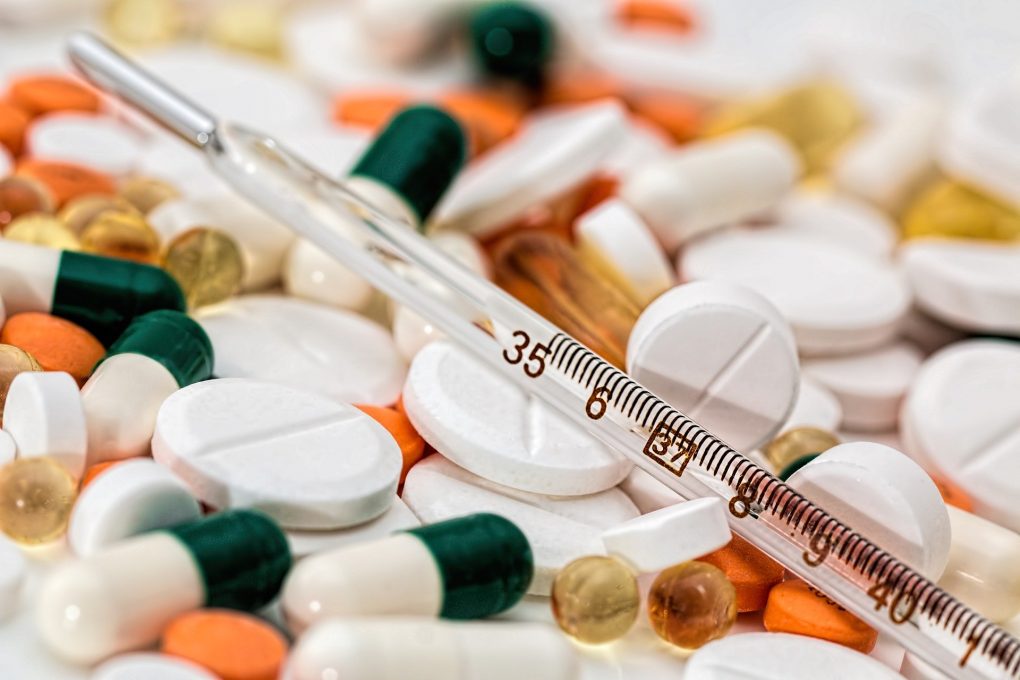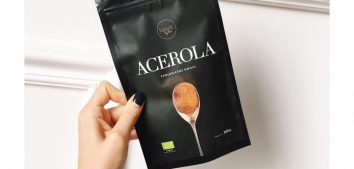
Does immunity live in the stomach, or, is it worth supplementing probiotics during an infection?
The topic of fighting infection is definitely the one which currently prevails. In order to support the immune system in the fight against viruses and bacteria, we try to look for wonderful substances that are supposed to strengthen our immunity and thus protect against upper respiratory tract infections, preferably here and now.
At the beginning we have a very important piece of information for you: unfortunately, it can’t be done immediately… Stimulation of the immune system is a long-term process, and a very important part of it is to take care of proper hygiene and introduce some principles that are beneficial to our immune system. We often underestimate how modifying certain habits and introducing a few simple changes in everyday life can significantly affect our health. With this in mind, let’s remember that our immune system needs:
- a healthy, unprocessed diet, rich in all micro and macro elements
- adequate amount of sleep and regeneration
- physical activity
- reducing stress in everyday life – it might not be easy, but it’s definitely worth a try 🙂
In other words, it is worth eliminating behaviors and habits that overload our immunity so that it can work efficiently and focus on the real enemy, that is: infectious agents.
These rules are simple although paradoxically it is much more difficult for many of us to implement than taking several supplements every day… Unfortunately, this short cut will not help if we do not change the quality of our lives. If we care about a healthy life and do not want to burden our immune system, it is worth learning some methods that can provide additional support to our immune system.
How probiotics work
One of such methods is certainly taking probiotics, i.e. live strains of bacteria, with documented pro-health effects. Their main role is to support intestinal microbiota in maintaining balance. What does it mean in practice? In our intestines, especially in the large intestine, there are millions of microorganisms that have a beneficial effect on our entire body. They can be compared to a huge factory which produces a number of compounds every day, including B and K vitamins, serotonin (colloquially called the happiness hormone) and short-chain fatty acids, necessary for proper intestinal regeneration. It has been shown that intestinal microbiota is extremely important for the proper digestion and absorption processes, as well as mineral and electrolyte metabolism, and it even affects the functioning of the central nervous system, which indirectly affects our mood.
Probiotics and immunity
Today, however, I want to discuss the extremely important feature of intestinal microbiota, which is the activation and regulation of the immune system. Lots of people will probably be surprised by the fact that bacteria residing in the intestine affect our immunity… But when we take into account the fact that about 70% of all cells of the immune system are located in the intestine (GALT immune system), it becomes somewhat more understandable. When we also learn that from the moment of delivery intestinal bacteria are the basic trainers of our intestinal immunity, the considerable role they play in efficient fight against infections will cease to be surprising.
Immunological memory
When we come into the world, our immune system is “pristine”, which simply means it is not yet aware of what and how to fight. Immune cells recognize their enemy (including viruses and bacteria) during their first contact with an infectious agent, which leads to the formation of immunological memory. In other words, they remember pathogens with which they have already been in contact and the next time they enter the body, the elimination of the infectious agent is much faster and more efficient. We are talking about immunological memory. Because of this, young children get sick much more often than adults as their immune system is just learning about the world of bacteria and viruses and learning how to fight them efficiently. For the described training to work properly, it is necessary to have resistance trainers who “direct” the immune system towards the proper reaction. Our microbiota performs this role, not only in the first days after birth, but in fact throughout the whole life. Intestinal bacteria constantly keep our immune system ready to defend our body by stimulating it. So you cannot underestimate the role of intestinal microflora in the prevention of infectious diseases and the fight against infections.
Infection and intestinal microflora
If the intestinal microbiota is in a state of balance, that is, pro-health bacteria dominate, we enjoy better immunity, and even if the infection develops, we usually fight it faster and more efficiently. Unfortunately, the problem begins when intestinal dysbiosis occurs in our digestive tract, i.e. when there is a decrease in the number of beneficial microorganisms and the multiplication of those that we consider to be potentially pathogenic (e.g. proteolytic bacteria or fungi).
Then the GALT immune system loses its trainers and works less efficiently and this promotes the development of infection. This can easily be seen after antibiotic therapy, when we are much less resistant than before using the antibiotic. There is a reason why pediatricians often indicate that after taking an antibiotic, the child should stay at home for some time, and not immediately go back to kindergarten or school. They know that the disruption of the intestinal microflora, which is a result of antibiotic therapy, translates into weaker immunity.
And this is where probiotics, or specific drugs for damaged intestinal microflora, come to our aid. Bacteria contained in probiotic preparations will not colonize our intestines forever, they are to help our microbes return to equilibrium for some time. Consequently, there is a desired stimulation of the GALT system, increased production of sIgA, antibacterial antibodies, increased macrophage activity, cytokine synthesis and regulation of Th1 and Th2 lymphocytes. All these hard-sounding functions mean one thing: our immune system fights more efficiently against viruses and bacteria that enter our body. This can significantly reduce the risk of infection, and if it eventually develops, it will have a milder course.
The golden rules of probiotic therapy
The use of probiotics can be an important factor supporting the proper functioning of the immune system, provided that we take into account the two basic conditions of probiotic therapy.
Condition 1 – don’t expect miracles here and now. Probiotics don’t work this way, not even a few days after starting supplementation. We should remember that they are to support our microbiome in achieving balance, and this unfortunately takes time. Only the reconstituted and efficiently functioning intestinal microflora will have a beneficial effect on the GALT immune system located in the intestine. This explains why the improvement in the functioning of the immune system is observed only after a certain time from the start of supplementation. If we feel already infected, we have a sore throat, higher temperature or runny nose, let’s face it: even a huge dose of probiotic will not make us wake up healthy in the morning. However, if we have been taking probiotics systematically for several weeks, our immune system, having adequate support, will certainly work efficiently and the risk of infection will be lower. So there seems to be nothing to wait for: it’s time to start probiotic supplementation!
Condition 2 – choose well-tested, high-quality probiotics. Remember that not all probiotic strains work the same. While some will effectively reduce the time of infectious diarrhea, others will help in alleviating atopic changes. In order to achieve a specific result, we should choose a probiotic which is effective in this particular clinical problem. In order to have good immunity, we should choose the best of its trainers, i.e. strains of bacteria with a documented effect on the immune system. Which? You will find out soon enough 🙂
You know that I am an avid fan of probiotic supplementation. I myself test almost every new probiotic product that appears on the market. So you often ask me which probiotics I recommend, which is the best, which is worth taking… For this reason, I am already preparing another post for you and this time it’s going to be a practical guide that will help you choose specific probiotics. If we want to support the immune system in the fight against infections, we must know how!









Comments No Comments
Join the discussion…